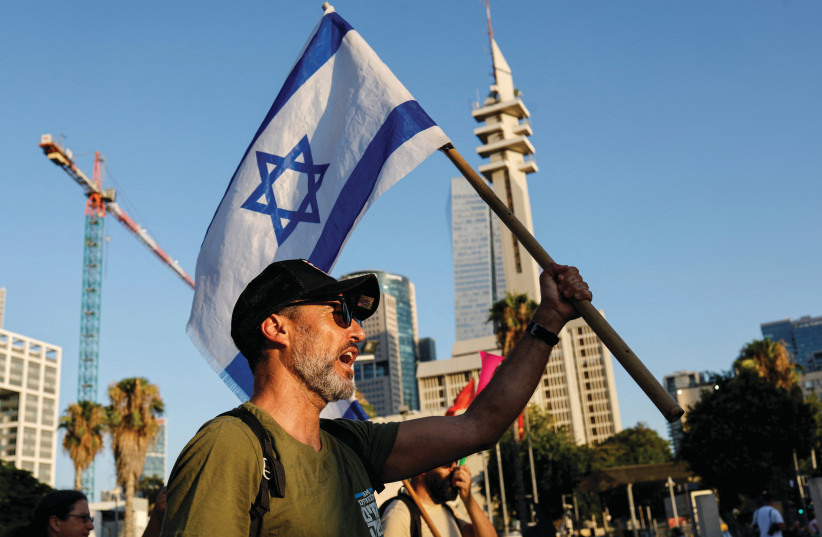The IDF on Thursday took the unusual step of publicizing that it is penalizing two naval brigadier-generals, for refusing their call-up to protest the government’s judicial overhaul policy.
Until now, the IDF has not publicized the penalties imposed on many officers who have refused call-ups.
In one of the few exceptions, a top air force officer was suspended in spring but reinstated within days when both sides said there had been a misunderstanding.
The naval commander is only one rank higher, at major-general, than brigadiers who are often in charge of intelligence operations, or other key divisions.
Judicial reform protest action
A statement from the IDF said that the two had said they did not want to continue their service due to the disputed judicial legislation.

One of the two officers’ service was frozen after he spoke to Vice-Admiral David Saar Salama, while the second officer is due to have a similar conversation with Salama in a few days time.
IDF Chief-of-Staff Lt.-Gen. Herzi Halevi approved Salama’s decision.
The short public statement initially issued by the IDF, left unclear if publicizing the penalties was connected to pressure from Prime Minister Benjamin Netanyahu and others in the coalition calling for stronger action against officers who resist reserve call-up.
However, an IDF spokesman later clarified to the Jerusalem Post that the decision to issue a penalty to the one officer who has already been suspended was made in the middle of last week, before the latest conflict with Netanyahu went public this past Friday.
According to that timing, there would be no connection between the two events.
Questioned about why the IDF made the punishment public specifically on Thursday, a whole week later, the spokesman replied that other media outlets had started to publish incorrect information and sensationalized the incident.
One outlet said that both officers have already been retired, whereas one has been suspended and the other officer’s disciplinary process is still pending.
The statement noted that all reservists in the navy above a certain age were legally volunteers.
Also, the IDF said that the navy would be able to continue its operations without changes, though there have been leaks that the navy, due to its small size, is under greater pressure than the army because of the reservist crisis.
The air force and intelligence units are under even more pressure because of quitting reservists.
Both protesting officers were promoted over the regular course of their service, which was published to correct mistaken claims by other media outlets that their promotions had been improperly rushed.
